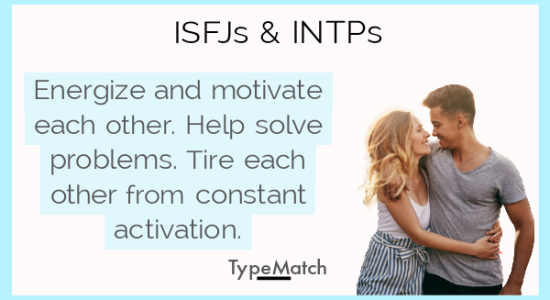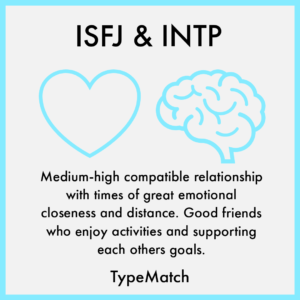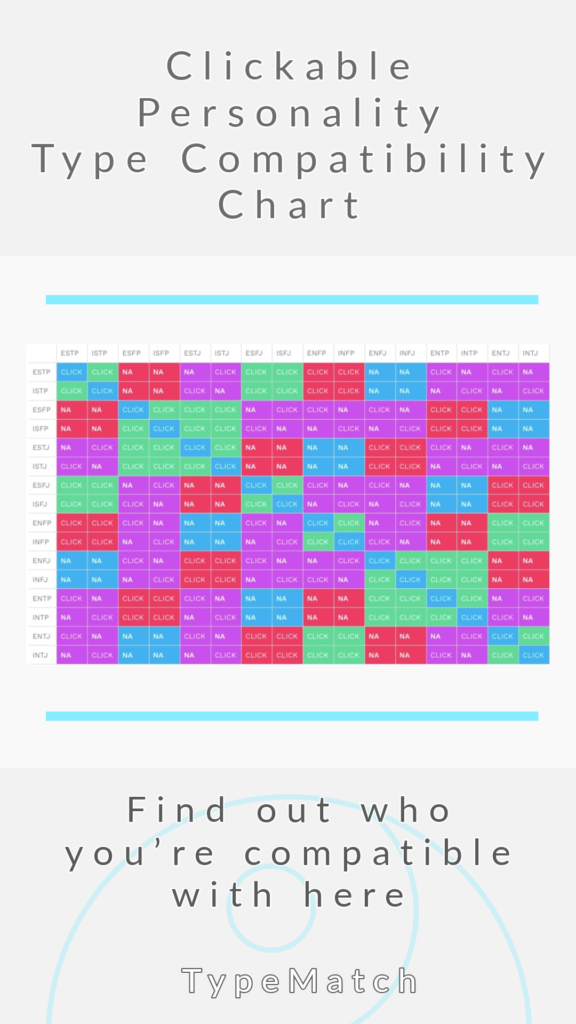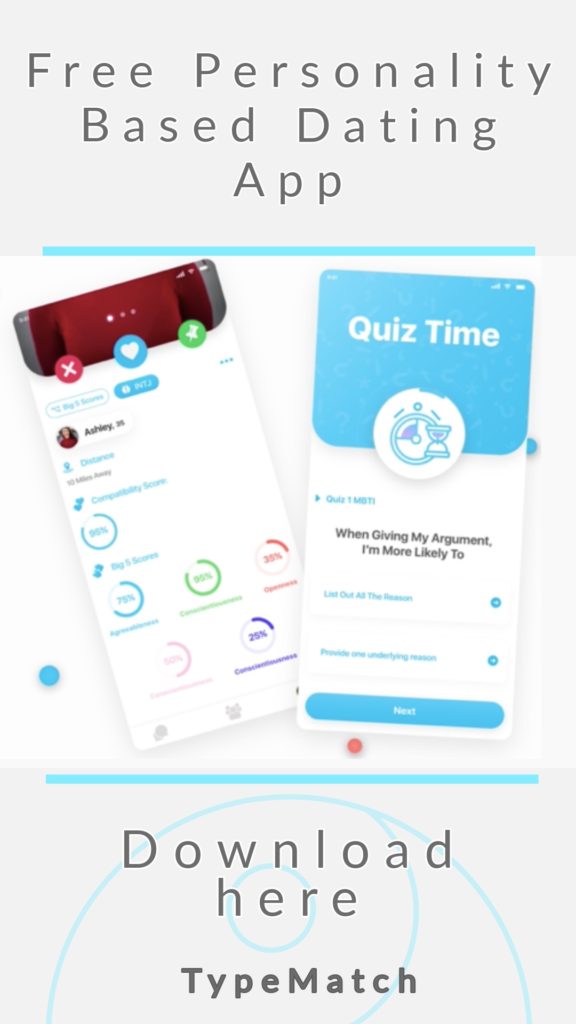ISFJ and INTP Relationship
Are ISFJ and INTP Relationships Compatible?
ISFJ and INTP relationships are full of spark as they energize and motivate each other. TypeMatch ranks this pair medium-high in terms of romantic compatibility but very high for friendship compatibility in our free TypeMatch dating app based on personality type compatibility. Below we detail what makes this relationship so great but also so difficult to maintain.
ISFJ and INTP Attraction
In terms of getting things going, ISFJ and INTP relationships are the easiest to start. Communication is established immediately and they’re able to easily let their guard down in front of each other. In a large room, they have sort of a magnetic draw to each other and quickly strike up conversations and become friends. They find conversations rewarding and interesting but not that deep in terms of content. However, they absolutely love engaging in activities together and they make the best of partners when it comes to having fun.
ISFJ and INTP relationships are called activation relationships because they have the ability to activate each other in a way that makes them feel motivated, energized, and excited. They encourage each other and help each other to find solutions to their problems in a way that mobilizes each one. With the encouragement of their partner, ISFJs and INTPs are much more productive and accomplish a great deal. They give each other the courage to go for what they really want in life. This feeling of invincibility is intoxicating as they propel each other forward in life.
INTP and ISFJ Emotional Rollercoaster
However, this great build-up of energy is not without a downfall. While they energize each other at first, both eventually become emotionally exhausted and either distance themselves or lash out. This causes a sort of roller coaster quality to the relationship where they rev each other up and then tire each other out. These two need to take frequent breaks from each other to balance themselves both mentally and physically from all the activation. ISFJs and INTPs find themselves acting less rationally and more emotionally in each other’s prolonged presence. Further, the inconsistent energy behind the relationship leads to confusion about whether they should be together or not. Unfortunately, though the relationship starts very easily, it can also be easy to break, especially if they do not understand their typology and differences.
INTPs are notorious for having a difficult time dating. They’re hard to read and emotions make them uncomfortable. So, they’re one of the types that people need the most help understanding. If you need help dating an INTP, download our INTP dating guide with our top 20 practical tips.

Communication Struggles
Likewise, communication between ISFJs and INTPs has a rollercoaster quality of being either too intense and energizing or too slow and draining. At first, they open communication with each other extremely easily. However, they eventually find how different they really are in terms of how they see things. There is an incompatibility in their communication styles because of their preference for intuition vs sensing and judging vs perceiving. As a result, they make decisions based on criteria that don’t make sense to the other. ISFJs and INTPs also struggle with incompatible work styles because they approach goals completely differently. As such, they are better to work on small and not large projects together.
Because ISFJs and INTPs cannot understand or predict what the other may do in a given situation, they find each other unreliable. A relationship between an ISFJ and INTP requires extra communication and they feel like they have to explain themselves a lot. They need to make an effort to maintain the relationship as it won’t happen without some work. The relationship works best when they keep a rich life outside of the relationship. This includes work, friendships, and hobbies that they can do separately for frequent breaks to avoid overloading themselves and each other.
Additionally, ISFJs and INTPs struggle with communicating when it comes to advice. They give each other advice that hits on their partner’s weak functions. While it is certainly accurate and well-intentioned, it’s not that helpful because the other person cannot develop that aspect much. So, they find that they can’t help their partner to the extent that they would like. As a result, ISFJs and INTPs become demanding with each other which leads to arguments. Luckily, they get over arguments and forgive quickly if they get a break.
Final Thoughts
Moreover, ISFJs and INTPs are great in terms of relaxing and enjoying activities but aren’t well suited for everyday life together. Commonly, these types are friends who enjoy each other’s company but have to go different ways in terms of life paths. To preserve the relationship, they keep things light, go out and have fun, and don’t discuss serious topics. They especially enjoy spending time together in a setting of mutual friends or a public atmosphere. Of course, not every ISFJ or INTP is the same and the relationships manifest differently, although these underlying patterns are present. We do not recommend that anyone make decisions for their relationships based on typology alone. However, knowing typology can benefit both in terms of understanding each other and having a successful relationship.

More Resources for ISFJ & INTP Relationships
Sources:
A.V. Bukalov, G. Boiko, “Why Saddam Hussein made a mistake, or what is Socionics”
Ekaterina Filatova “Art of understanding yourself and others”
Eugene Gorenko, Vladimir Tolstikov, “Nature of self”
I.D. Vaisband, publications on Socionics
Laima Stankevichyute “Intertype relations”
O.B. Slinko, “The key to heart – Socionics”
R.K. Sedih, “Informational psychoanalysis”
Sergei Ganin
Valentina Meged, Anatoly Ovcharov
V.V. Gulenko “Criteria of reciprocity”
V.V. Gulenko, A.V. Molodtsev, “Introduction to socionics”







